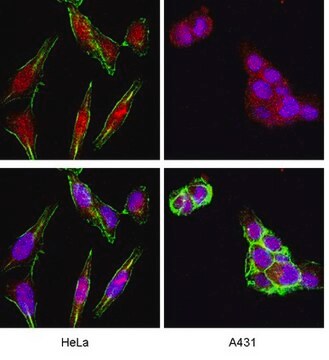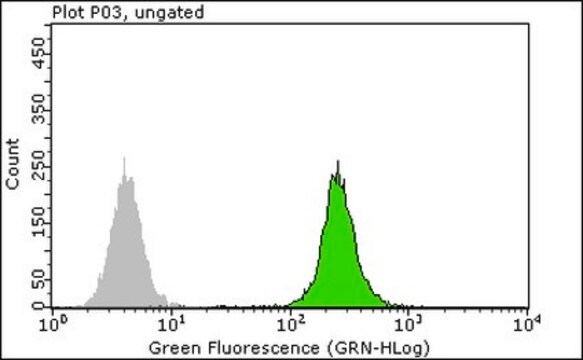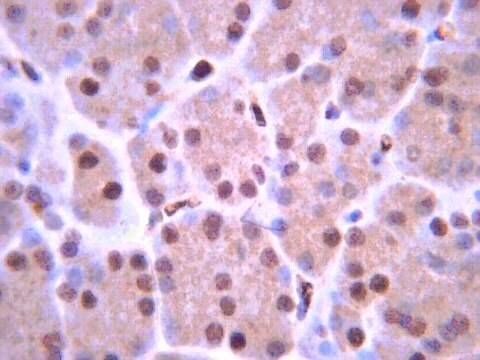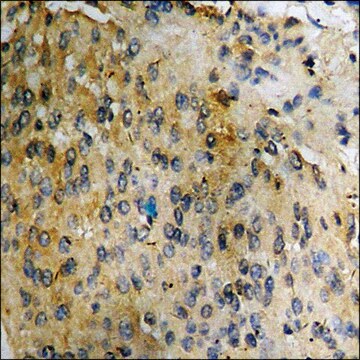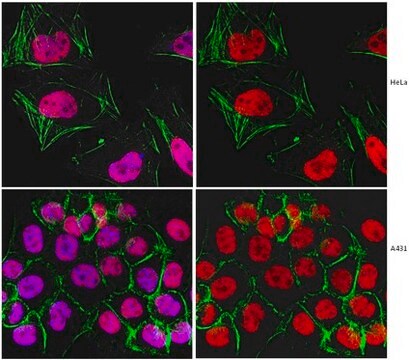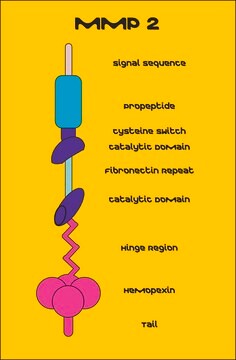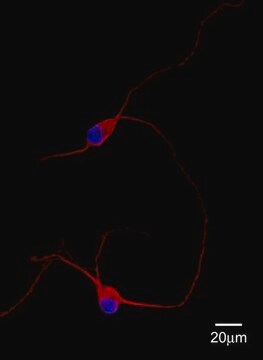MAB4356
Anti-DPPA-2 Antibody, clone 6C1.2
clone 6C1.2, from mouse
Synonim(y):
Pluripotent embryonic stem cell-related gene 1 protein, developmental pluripotency associated 2
About This Item
Polecane produkty
pochodzenie biologiczne
mouse
Poziom jakości
forma przeciwciała
purified antibody
rodzaj przeciwciała
primary antibodies
klon
6C1.2, monoclonal
reaktywność gatunkowa
mouse
metody
western blot: suitable
moc wejściowa
sample type: mouse embryonic stem cell(s)
izotyp
IgG2aκ
Warunki transportu
wet ice
docelowa modyfikacja potranslacyjna
unmodified
informacje o genach
mouse ... Dppa2(73703)
Opis ogólny
Specyficzność
Immunogen
Zastosowanie
Stem Cell Research
Pluripotent & Early Differentiation
Jakość
Western Blotting: Recommended working concentration is 2 µg/mL.
Opis wartości docelowych
Postać fizyczna
150 mM NaCl with 0.05% sodium azide.
Przechowywanie i stabilność
Inne uwagi
Oświadczenie o zrzeczeniu się odpowiedzialności
Nie możesz znaleźć właściwego produktu?
Wypróbuj nasz Narzędzie selektora produktów.
Kod klasy składowania
12 - Non Combustible Liquids
Klasa zagrożenia wodnego (WGK)
WGK 1
Temperatura zapłonu (°F)
Not applicable
Temperatura zapłonu (°C)
Not applicable
Certyfikaty analizy (CoA)
Poszukaj Certyfikaty analizy (CoA), wpisując numer partii/serii produktów. Numery serii i partii można znaleźć na etykiecie produktu po słowach „seria” lub „partia”.
Masz już ten produkt?
Dokumenty związane z niedawno zakupionymi produktami zostały zamieszczone w Bibliotece dokumentów.
Nasz zespół naukowców ma doświadczenie we wszystkich obszarach badań, w tym w naukach przyrodniczych, materiałoznawstwie, syntezie chemicznej, chromatografii, analityce i wielu innych dziedzinach.
Skontaktuj się z zespołem ds. pomocy technicznej
